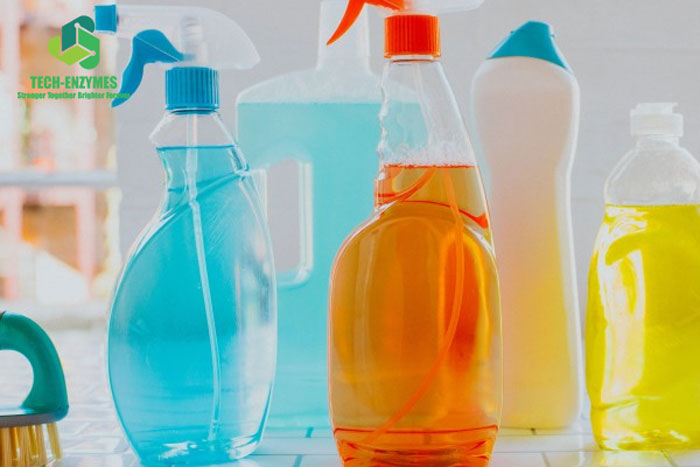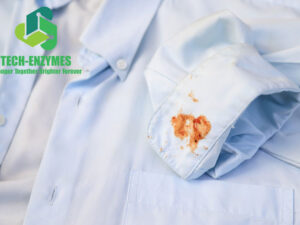BAA-300 is a food grade alpha-amylase enzyme produced from Bacillus subtilis strain through submerged fermentation, extraction and refining. BAA-300 is an endoamylase that can rapidly reduce the viscosity of starch solution by randomly hydrolyzing the α-1, 4 glycosidic bonds of starch molecules and producing soluble dextrins and oligosaccharides. This process prolongs hydrolysis to produce glucose and maltose.
PRODUCT FEATURES
Enzyme composition: Alpha-Amylase
System name: EC 3.2.1.1, 1,4-α-D-glucan glucanohydrolase
Effectiveness: ≥ 10,000 U/gr
Sensory description: powder, light brown color
pH: 5,0-7,0
Specific gravity: 1.1-1.25 g/ml
Impact of pH: BAA-300 is active at pH 6.0-7.0, with an optimum pH of 6.0 – 6.5. And is significantly inactive at pH below 5.0.
Impact of temperature: BAA-300 can operate at temperatures from 30-90°C, optimally at 60-70°C. At temperatures of 70-90°C, the reaction rate increases as the temperature increases, enzymes also begin to lose activity at this temperature range.
Effects of Calcium: The presence of calcium ions plays a role in protecting the stability of enzyme activity. Enzyme activity disappears completely if calcium ions are absent. The pH range of enzyme activity is expanded when calcium ions are present and narrowed when calcium is absent.
Enzyme inhibitors: Copper, Titanium and Cobalt ions are moderate inhibitors for BAA-300 while Aluminum, Lead and Zinc ions are strong inhibitors.
Pack: Plastic drum 25kg, 30kg or 1125kg.
Expiry date: Typically 6 months below 25°C in original, sealed and unopened packaging, away from direct sunlight. Shelf life will be extended to 18 months if properly stored at 0∼10°C.
Preserve: Store in a cool, dry place. Storage under adverse conditions such as humidity and high temperature may result in higher dosage requirements.




















Evaluate ALPHA-AMYLASE BAA-300
There are no reviews yet.